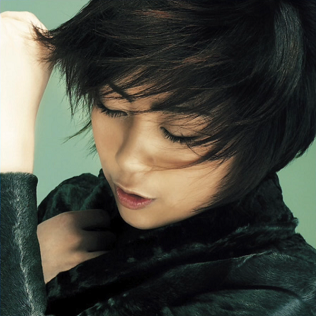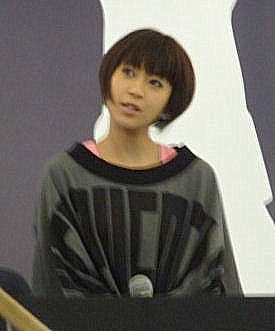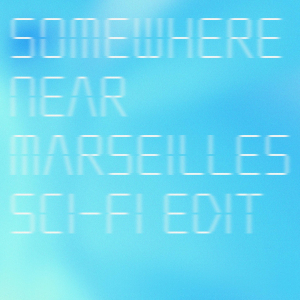
Hikaru Utada, also known mononymously as Utada, is a Japanese-American singer, songwriter and producer. Utada is considered to be one of the most influential, bestselling musical artists in Japan.

First Love is the debut Japanese-language studio album by Japanese-American recording artist Hikaru Utada, released on March 10, 1999, by Toshiba-EMI.

Distance is the third studio album by Japanese singer Hikaru Utada. Toshiba EMI released it on March 28, 2001, making it her second release with the label. Utada wrote and co-produced the majority of the album, alongside previous collaborators Akira Miyake and her father Teruzane Utada, as well as new collaborations with American producers Rodney Jerkins and Jimmy Jam & Terry Lewis. Distance, like its predecessor First Love (1999), is influenced by pop music and R&B, with additional hip-hop, rock music, reggae, and techno influences from Western music.

"Hikari" is a song recorded by Japanese–American recording artist Hikaru Utada for her fourth studio and third Japanese language album, Deep River (2002). It premiered on March 20, 2002, as the third single from the album in Japan. It was written and composed by Utada, whilst production and arrangement was handled by Utada, her father Teruzane Utada, and long-time collaborator Miyake Akira. The single, and a remix by Russell McNamara, was used as the official Japanese theme song for the 2002 action role-playing video game Kingdom Hearts, and appeared on its original soundtrack respectively. Musically, "Hikari" is a pop folk song. Lyrically, it is about mysteries in life and human activities.

"Traveling" is a song recorded by Japanese–American recording artist Hikaru Utada. It was released as the second single from her fourth studio and third Japanese language album, Deep River (2002). The track was written and composed by Utada, whilst production was handled by Utada, her father Teruzane Utada, and long-time collaborator Akira Miyake. Musically, "Traveling" is a dance-pop song, influenced by house music. Lyrically, it discusses human activities and dreams.

"Wait & See (Risk)" is a song recorded by Japanese–American singer Hikaru Utada for her third studio and second Japanese language album, Distance (2001). It was released on April 19, 2000 as the second single from the album in Japan. It was written and composed by Utada, whilst production and arrangement was handled by Utada and American duo Jimmy Jam & Terry Lewis. The single also included the two B-side tracks, "Hayatochiri" and "Fly Me to the Moon ", with the former song appearing on the parent album. Musically, "Wait & See (Risk)" is an R&B song, influenced by dance-pop and rock.

"First Love" is a song by the Japanese-American singer-songwriter Hikaru Utada. It was released on April 28, 1999, as the third Japanese language single from her second studio album, First Love, which was issued a month previously. It was certified double platinum for 800,000 copies shipped to stores in Japan.

"Movin' On Without You" is the second single by Japanese–American singer and producer Hikaru Utada. It serves as the second single from her debut studio album First Love (1999). The song was the first song that Utada had written and composed by herself. "Movin' On Without You" was incepted while Utada was attending high school in Tokyo, Japan, during 1997. Utada, who received a recording contract by Toshiba-EMI, had written an English-language version of the song, which remains unreleased to this day.

The discography of Japanese-American R&B and pop singer Hikaru Utada consists of eleven studio albums, four compilation albums, eleven video albums and numerous singles and promotional singles. Utada began as a musician in the early 1990s as a member of U3, a family unit made up of her, her mother Junko Utada, also known as 1970s enka singer Keiko Fuji, and her father, musical producer Teruzane Utada. U3 released their debut album Star in 1993, with the hope to debut in America. In 1996, the group was rebranded as Cubic U, an R&B project focusing on Hikaru Utada, resulting in the English language album Precious in 1998 with record label Toshiba EMI.

"Beautiful World" is a song by Japanese American musician Hikaru Utada. It served as the theme song for Evangelion: 1.0 You Are (Not) Alone, the 2007 film reboot of the anime Neon Genesis Evangelion. It was released as a double A-side single on August 29, 2007 along with her song "Kiss & Cry", which had been released digitally three months earlier. In 2009, a remix of the song, "Beautiful World " served as the theme song of the second film in the series, Evangelion: 2.0 You Can (Not) Advance.

Heart Station is the seventh studio and fifth Japanese-language album by Japanese–American recording artist Hikaru Utada. It was released on March 19, 2008, by EMI Music in Japan, and globally on March 26, 2008. It is Utada's eighth consecutive studio album to be fully written and produced by her, with the help of her father Teruzane Utada and long-time collaborator Miyake Akira through the production. Recorded between 2006 and 2008, it was worked on whilst she was recording her ninth studio and second English-language studio album, This Is the One (2009). With the album artwork photographed by Japanese photographer Mitsuo, Heart Station was released in two formats: a physical CD, and as a digital download.

"Automatic" is a song recorded by Japanese–American singer Hikaru Utada, taken as the lead single from her debut album First Love (1999). It was released on December 9, 1998, through Toshiba-EMI in three physical formats: mini CD single, standard-size CD single and 12" vinyl. Additionally, the single included the A-side "Time Will Tell", which originally served as the B-side for these versions. The song was written and co-produced by Utada, while Akira Miyake and the singer's father Teruzane Utada served as producers. Despite recording in English under the name Cubic U, "Automatic" is Utada's first Japanese recording, and was released after she enrolled into high school in Japan.

"Time Will Tell" is a song recorded by Japanese–American singer Hikaru Utada, taken as the lead single from her debut album First Love (1999). It was released on December 9, 1998, through Toshiba-EMI in three physical formats: mini CD single, standard CD single and 12" vinyl. Additionally, the single was originally served as a B-side to "Automatic", but was changed into an A-side. The song was written and co-produced by Utada herself, while Akira Miyake and the singer's father Teruzane Utada served as producers. Despite working recording in English under the name Cubic U, "Time Will Tell" is Utada's first Japanese recording, and was released after she enrolled into high school in Japan.

"Sakura Drops" is a song by Japanese-American musician Hikaru Utada. It was released as a double A-side single with the song "Letters" on May 9, 2002.

Fantôme is the sixth Japanese studio album by Japanese-American singer-songwriter Hikaru Utada. Although Utada announced an indefinite hiatus from the public eye in August 2010, she continued writing and composing material with her father, Teruzane Utada, and long-term collaborator, Akira Miyake. Musically, Fantôme contains a collection of tracks that utilizes acoustic and stripped-down instrumentations, alongside influences of pop, electronic, and R&B music. The lyrical content delves into themes of grief, sadness, love, and death—mostly influenced by the death of her mother, her second marriage, and the birth of her son in 2015.

Hatsukoi is the seventh Japanese-language studio album by Japanese–American recording artist Hikaru Utada. It was released on June 27, 2018, as her first album under Sony Music Japan sublabel Epic Records Japan. The release coincided with the commemoration of her 20th Anniversary as an artist in Japan. A national tour was announced to support the album in November 2018. The five previously released songs were confirmed in the album track list, for a total of twelve songs, including the title track "Hatsukoi" and the Kingdom Hearts III theme song "Chikai".

"Face My Fears" is a song by Japanese-American singer Hikaru Utada and American DJ Skrillex. It was released on various formats by Epic and Sony Music Japan on January 18, 2019, and serves as the lead single from Utada's eleventh studio album, Bad Mode (2022). It was recorded in both English and Japanese and serves as the theme song for Square Enix's 2019 action role-playing game Kingdom Hearts III. After being approached by Square Enix to work on the video game, Utada asked Skrillex to remix "Don't Think Twice" for the game, but later decided to collaborate and create a new song.

One Last Kiss is an extended play by Japanese musician Hikaru Utada, which was released in the US on March 9, 2021. It was released for promotion of the Japanese animated film Evangelion: 3.0+1.0 Thrice Upon a Time around the time of the film's release. It contains all the previously released theme songs that were made for the Rebuild of Evangelion film series. It also contains the theme song "One Last Kiss", which was co-produced by A. G. Cook and released in conjunction with the film on March 10, 2021.

"Kimi ni Muchū" is a song recorded by Japanese-American singer Hikaru Utada. It was released via Epic Records Japan and Sony Music Japan on November 26, 2021, as one of the several singles for her eighth Japanese studio-album Bad Mode (2022). The track serves as the main theme for the TBS Friday night drama Saiai. It's co-produced by Utada and the British music producer A. G. Cook.

"Somewhere Near Marseilles" is a song by Japanese-American singer Hikaru Utada. It appeared as the closing song to the standard version of Utada's eleventh studio album Bad Mode (2022), and a live recording of the song was released as a single on September 16, 2022. On April 3, 2024, Epic Records Japan released the "Sci-Fi Edit" version as the third single from Utada's first greatest hits album, Science Fiction (2024). The song was written entirely by Utada and arranged and produced by Utada and Sam Shepherd.




















